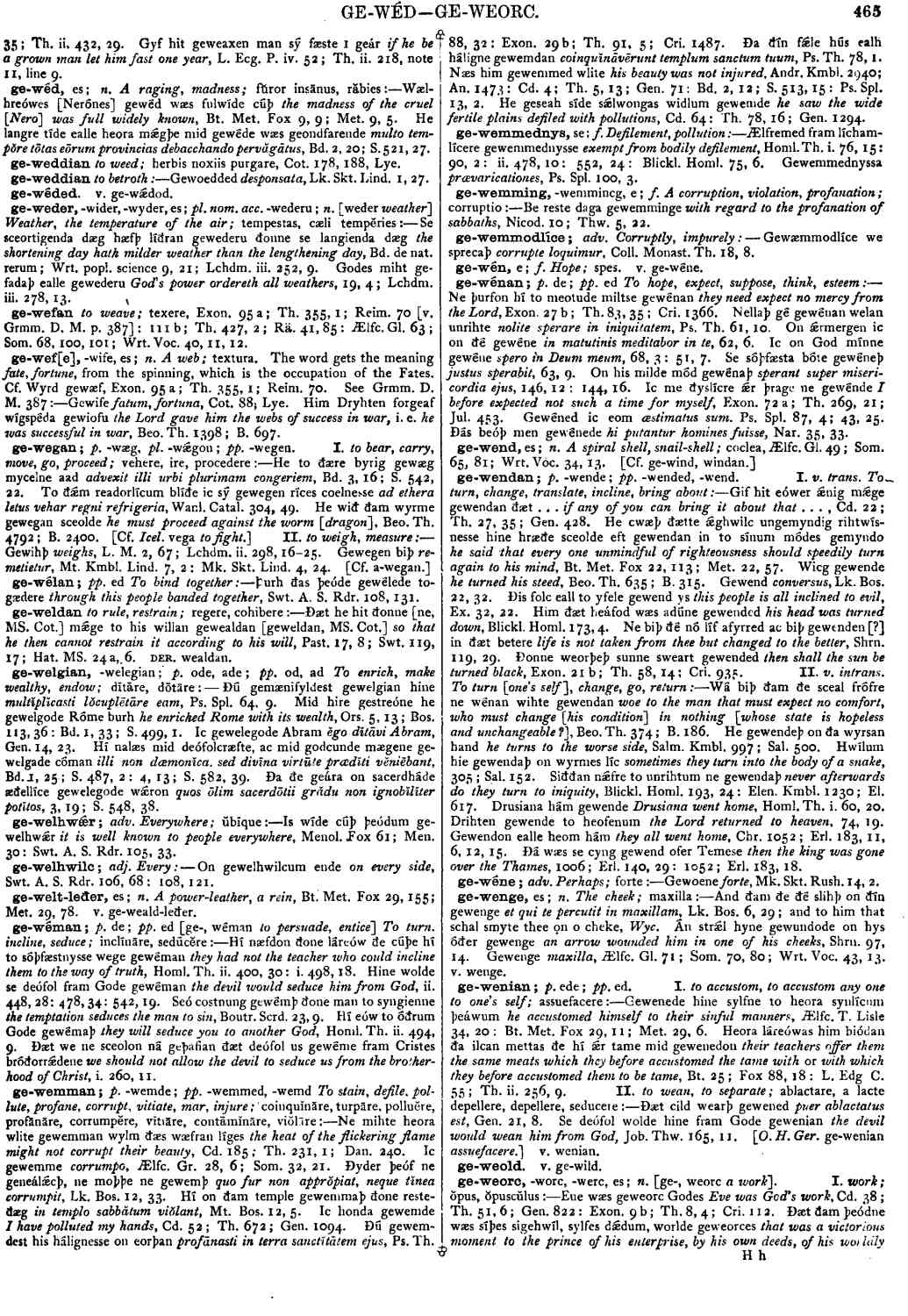ge-weorc
- noun [ neuter ]
-
Eue wæs geweorc Godes
Eve was God's work,
- Cd. 38 ;
- Th. 51, 6 ;
- Gen. 822 :
- Exon. 9 b ;
- Th. 8, 4 ;
- Cri. 112 .
-
Ðæt ðam þeódne wæs síþes sigehwíl, sylfes dǽdum, worlde geweorces
that was a victorious moment to the prince of his enterprise, by his own deeds, of his worldly work,
- Beo. Th. 5415 ;
- B. 2711 .
-
He geseah eald enta geweorc
he saw the antique work of giants,
- Andr. Kmbl. 2988 ;
- An. 1497 :
- 2155 ;
- An. 1079 .
-
On ðæt geweorc
in ŏpus,
- Bd. 1, 23 ;
- S. 485, 40 .
-
Ne wáciaþ ðás geweorc
these works fail not,
- Exon. 93 b ;
- Th. 351, 26 ;
- Sch. 86 .
-
Mǽre wurdon his wundra geweorc
great were his wondrous works,
- 45 b ;
- Th. 155, 2 ;
- Gú. 854 :
- 40 a ;
- Th. 133, 35 ;
- Gú. 500 .
-
Of geweorcum árwurþra fædera
ex ŏpuscŭlis venerābĭlium patrum,
- Bd. 5, 24 ;
- S. 647, 33 .
-
He of ðam geweorce wæs winnende wið ðone here
he warred on the army from the fortress,
- Chr. 878 ;
- Erl. 80, 5 :
- 896 ;
- Erl. 94, 3, 21 .
-
He worhte him geweorc æt Middeltúne
he wrought him a fortress at Middleton,
- 892 ;
- Erl. 89, 14 :
- 894 ;
- Ed. 92, 4, 11 .
-
Ðe æt hám æt ðǽm geweorcum wǽron
who were at home in the fortresses,
- 894 ;
- Erl. 92, 18 .
-
Hí worhton tú geweorc
they wrought two forts,
- 896 ;
- Erl. 94, 11 .
-
Geweorc
arx, figmentum, māchĭna,
- Scint. 62 :
- Cot. 85 :
- 128, Lye .
Bosworth, Joseph. “ge-weorc.” In An Anglo-Saxon Dictionary Online, edited by Thomas Northcote Toller, Christ Sean, and Ondřej Tichy. Prague: Faculty of Arts, Charles University, 2014. https://bosworthtoller.com/16784.
Checked: 1